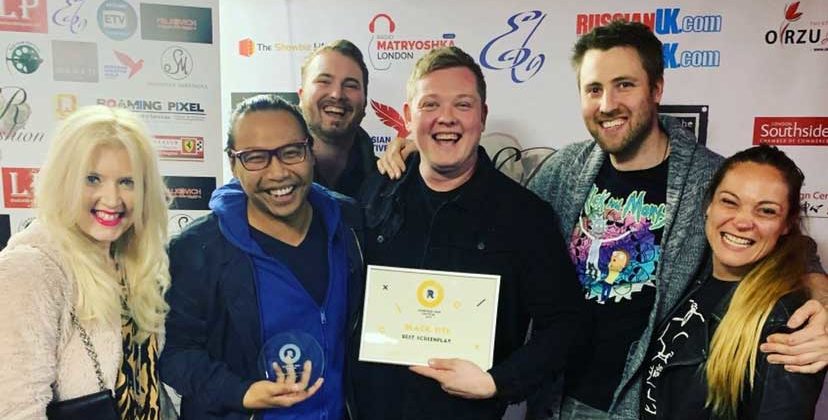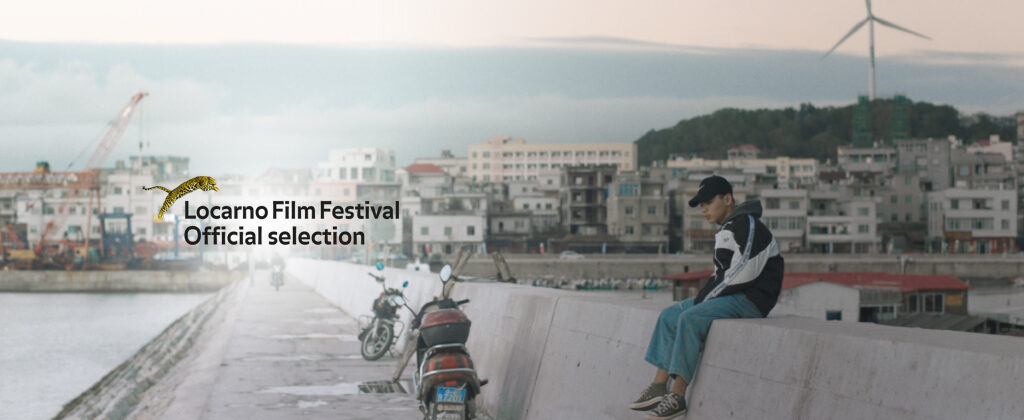The Film Festival Doctor (Yes, she’s a real doctor!) Dr. Rebekah Louisa Smith, continues to explore in further detail how the world of film festivals are adapting to the CV-19 pandemic now that they are slowly beginning to start back up again around the world. She was privileged to interview the unstoppable Spencer Hawken; the Director of another one of her favourite film festivals, the U.K.’s Romford Film Festival. Below, Spencer explains how he has transformed the festival and why it must be experienced live…
Spencer Hi, welcome to The Film Festival Doctor’s blog 🙂 could you kindly tell my reader a little bit about yourself and your awesome film festival in Romford, Essex?
The Romford Film Festival has been going for four years, it was born out of the idea that given that so many indie films are made in Essex and the surrounding area there should be a festival. While festival do exist, they are scaled, we in Romford are able to create a festival the likes of Raindance of Frightfest, with multiple screens over multiple days and with a whole host of extras thanks to our unique relationship with the Shopping Centre and Premiere Cinemas where we hold the festival. Many years ago I worked as a film reviewer, I travelled the country going from festival to festival reviewing films and the festival as a whole. In the early 2010’s I made some films and I became exposed to the film festival industry from “another side”. When we hatched the idea for the festival we made sure that our festival would not fall foul of this “other side” the element I can only classify as not quite legitimate, not quite fair to the filmmaker. While we won’t just show anything, if a film is missing something but has some excellent potential, we’ll screen it. Of course as our festival grows this becomes more problematic, year one we had 30 films, year two 100, year three 130 and this year just under 200 showing over a packed 7 days and multiple screens.
At this moment in time the world is currently experiencing the peak of the CV19 virus pandemic – how will you be adapting this year’s Romford film festival, which will be taking place in August?
If we think back to our first exposures to film festivals, we went because we wanted to see films, they might be premieres months or sometimes years ahead of release, they might be edgy indie films, but initially we went because we wanted to see films. As festivals have evolved it’s become about networking and almost more for the filmmakers than the audience, but the reality is that most filmmakers want an audience more than they want the adoration of other filmmakers.
We’ve essentially stripped back to the roots of what a film festival was and is. While some filmmakers and cast will be in attendance, we’ve removed all the Q&A sessions from the screens. This means that in a, screen dialogue is reduced and as a result aerosol spray that unfortunately a lot of us produce when we speak are limited. Silly as it sounds, they say that if someone sprays while they talk it can potentially hit a 10 metre radius of them. This doesn’t mean that those attending won’t be able to communicate with the filmmakers, we’ll be encouraging people to pose questions via social media or email, that will be put to filmmakers in an interview after the screening.
We’ve created a special studio where our interviews will take place, with a multi- camera set up designed to make it look as if we are directly talking to the filmmaker, when actually we’ll be on a slight angle. These will be edited by our fantastic Billy Holland and released daily on Youtube and Facebook for our audience and those that are at home unable to attend.
In the screens audiences will obviously experience social distancing, but we have the wonderful ability to start in smaller screens but upscale to as big as we need to, so for example a smaller screen can seat 40 people (normally 130), but if we sell 100 tickets we can move to a much larger screen, or open up multiple screens. Should demand be there we can happily accommodate up to 400 ticket sales.
Each screen will have screen wardens, attendees will be directed to seats by the warden. Hand sanitizer will be readily available as will masks.
In removing the social engagement elements it’s important to rule out the bar, so it’s being closed for the event. However, we are preparing a list of suitable venues we consider safe for people to go and discuss film while not being too far away from the festival to get back in time for films
Above all we feel that someone needs to guide all the festivals, not just in the UK but across the globe on how to do this correctly, and while we may not be the perfect festival, we need to prove this can be done and done safely. Then and only then can others copy, follow and improve on what we have done.
Have you received an increase in submissions for your film festival since the pandemic hit?
With the world in lockdown, almost every established filmmaker has a couple of films they needed the time to get together. Edits are sharper now the rush is off and some long dormant pieces are finally seeing the light of day. A couple of films submitted for our 2021 festival (of which we have received 70% more vs this time last year) have been sat awaiting edits for up to 5 years, mainly because those edits are complicated or that they were unable to get enough coverage during filming and need to restructure their original plans, or even because FX skills were not up to par when they shot.
With regards to the Romford Film Festival – what are you finding the most challenging things to figure out since the CV19 pandemic hit?
It’s definitely been trying to achieve the things people like so much about us but in a safe manner. A lot of smaller festivals don’t do all the interviews etc. we do, so still delivering that safely has been a challenge. The other challenge will obviously be encouraging people to come out and enjoy a festival, the average blockbuster movie currently is seeing between 7-17 admittances per screen because of public concern.
Again, with regards to the Romford film festival- what are the most positive things have occurred for the festival since the CV19 pandemic hit?
We’ve scored a number of major coups as a result of Covid-19, a few films have opted to come to us where the dream would normally be Raindance, Sundance or Frightfest, given we are a physical festival that is going ahead some films have literally withdrawn from bigger festivals because they don’t know if they will go ahead. Sometimes after submitting the filmmaker may have been forced to decide between us, as bigger festivals demand premiers. Filmmakers movies scheduled into major festivals, that have moved online due to the pandemic have been given a lifeline to do both opting on physical and online premieres, so two bites of the same apple so to speak. We have three films getting a physical premiere with us and having an online premiere a fortnight or month later at massive festivals forced to move online.
Are you finding the challenges, which you are currently facing to have brought out more creative ideas with regards to how will produce the festival?
I’m not sure about creative, more about rising to the restrictions. We can still have photographs, just not group photos. We can still have Q&A’s just not in the normal format. To be honest, the changes actually mean we can be much more streamlined, no rushing directors to finish their interviews because the next film is due to start. It will if anything, put a lot less pressure on our team and give our audience longer breaks.
What are your views with regards to online film festivals?
When I made film I deliberately avoided online festivals, I appreciate some festivals are big money makers and now in the new normal those that organize them the festival is literally their only form of income, they have to go forward or work a whole year without a wage. It’s not the same experience though. If you go and see a film in a cinema you are 100% engaged, you’re not answering the door, taking phone calls, text messages, playing games, reading or checking through your post. A physical festival keeps people truly engaged and with that, the audience appreciate the product far more.
Do you think that industry professionals are still paying attention to film festivals and their content as they move online?
Film is a massive business and with all major studios closing down until there is a change, these studios will be looking at indie festivals and indie films more than ever before, because they have no stock to distribute. People at home are still dying for new content and the industry professionals know this more so than ever before, given the restrictions on our lifestyles. Already a whole raft of films have been shown in portals they might not have ordinarily. This truly is a golden age for the indie filmmaker and while the financial deals may not meet filmmakers desires, getting distribution moves them up the ladder and increasing their chances for getting funding for their next features.
How will you implement social distancing during this year’s Romford Film Festival?
Every other row is cordoned off, Attendees are separated by empty seats, and full on density tests have been taken in every screen of the Premiere Cinema where the festival is held. This means we are able to optimize seating arrangements and thanks to working with a wonderful cinema, upscale as and when is needed.
Thank you so much Spencer for sharing such valuable insight with my reader. I’m really looking forward to attending the festival and am super grateful that our South African feature film; KINGS OF MULBERRY STREET will be opening the festival.
Instagram: @RomfordFilmFestival
Coming Next Week: I’ll be discussing the secrets to successfully networking on-line at film festivals and how to make an abundance of contacts.




